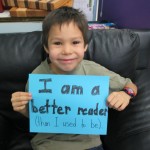Emulating great writing is a scaffold for all writers. So says pretty well everyone. I recently read Rick Reilly’s, a well-known sportswriter for ESPN Magazine, final article, and for obvious reasons, connected with it. So I am going to practice what I preach and use his powerful writing to support mine.
best-custom-essay-writing.net
My father was a great influence on my life. He was a great storyteller. I grew up hearing stories of the family homestead, his horse Fanny, major moments that shaped his life. He was a minister and embedded storytelling into his sermons and stories. Our dog Charlie was inspiration for devotions. He instilled a love of learning, reading, and writing in me.
He also loved people and accepted them for who they were. I have many memories of him laughing with people, challenging them to reflect, and making them feel good about themselves.
So when I started teaching, his influence helped me find my way. I also know there were many moments and events that shaped my career.
I remember stepping in to take over an elementary class where trauma had occurred. Students felt betrayed by authority and parents were on the attack. I learned that I had to listen. I wanted to fix things, but it was out of my control. I listened and learned that sometimes life is not fair and that the answers are sometimes unclear. But listening shows care and concern, and that goes a long way.
I remember moving to a school where students had many challenges. The principal told me that even though I had taught for 15 years, I was now going to learn how to really teach. He was right. I learned not to judge. I learned not to blame. I learned that parents love their kids, even if they are unsure how to show that love. I learned how to be firm and believe that all kids will learn. I learned how to try to maintain dignity for all in the midst of a struggle. I learned to really teach.
Young students write the cutest things in cards and notes to their teacher. A Grade Two student once wrote to me in his farewell card at the end of the year, “You’re funny even when you don’t mean to be.” It made me smile, but also made me realize that we never know what students see in us, so I learned to laugh freely.
And I noticed. I noticed teachers who work hard, who give of themselves, who spend their own money buying students school supplies. I heard teaches express care for students, wishing they could make their world a better place. I noticed teachers celebrate a student’s success as they run into a staff room to show their colleagues. I saw teachers support each other. I learned to give.
I watched as students lived in the classroom. I remember after I gave a mini-lecture about the kind of movies they should never watch, a bright young boy asked me “Mrs. Kasper, have you watched any of them?” I hadn’t, but I sure had judged, sight unseen.
Willy was a 7 year old conundrum. He was always in trouble, full of emotion, but wonderfully likeable. He taught me that there is good in everyone. While working with kids throughout the room, loud noise erupted in a corner. I raised my voice and called out a student’s name. Willy ran across the room and decreed that I should not blame that child. Willy was the cause of the trouble, and he would not let another child take the blame.
I discovered students really do know who you are. One young girl very perceptively told me she knew my favourite colour was black. When I asked her how, she said that it was what I wore most of the time. I know there is some deep psychological meaning to that, so I’ve now added navy and brown to my choices. She also told me my favourite word was ‘calm’. I think that speaks for itself.
I noticed joy. In Grade Two, silent reading is not really silent. Students are transitioning between oral reading and silent reading. When reading, one sweet thing would sing the words. I will never forget hearing Green Eggs and Ham being sung with joy.
Never let anyone tell you that teaching doesn’t make a difference. Never let anyone tell you there is one important thing to teaching – covering the curriculum, a reading level, caring about the kids. It’s so much more. It’s about working with colleagues who think like you, but also engaging with those who challenge your thinking. It’s about laughing with children as they find something funny. It’s about perseverance and creativity. It’s about drying a student’s tears and holding their hand so they can be in a space to explore new thoughts and ideas.
Why leave a job I have loved for 32 years? The world is a very large classroom, and I’m ready to step into a new world. A world where I will have time to renew and discover relationships. A world to uncover deeply hidden hobbies and interests.
And now it is time to leave….with great sadness. As I leave I start to realize what and who I am really leaving. I’m leaving friends and colleagues who I will miss seeing on a daily basis. I’m leaving projects and initiatives that I care about. My input is done and hopefully lives on as things continue to move forward. My relationships will continue, albeit in a different shape.
So I go back to my father’s influence. I can hardly wait to share stories to my granddaughter.
JoAnne Kasper

